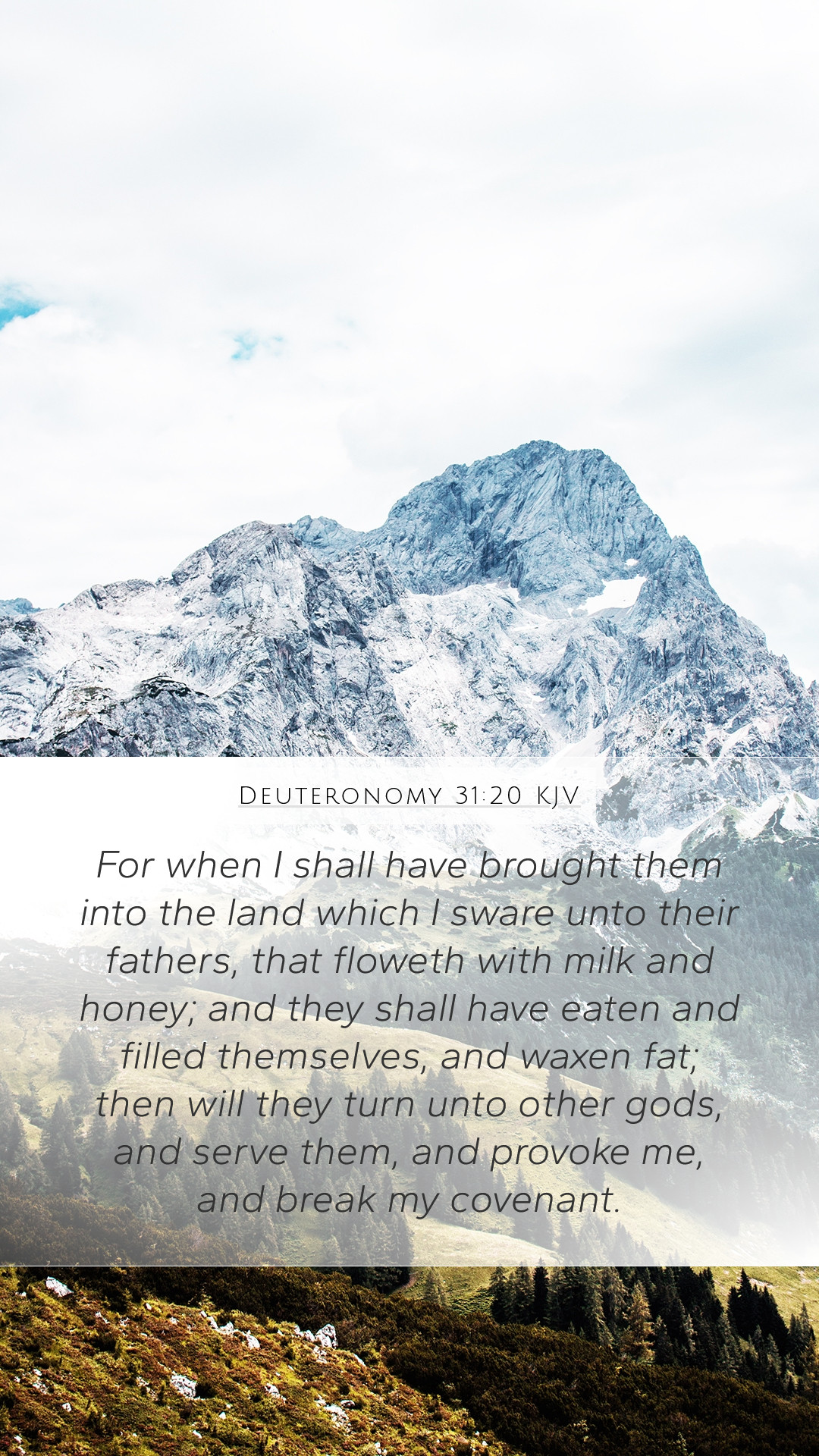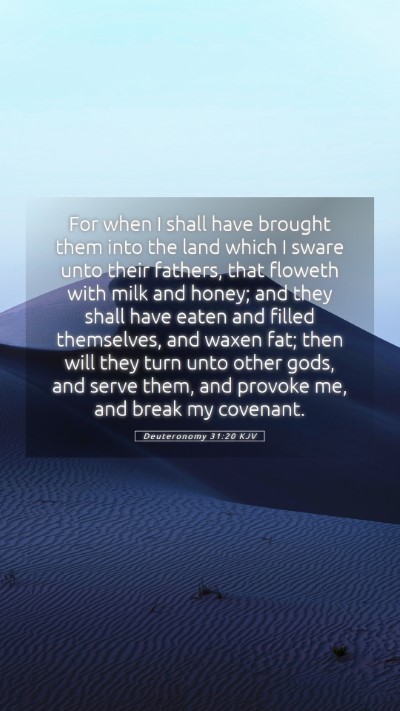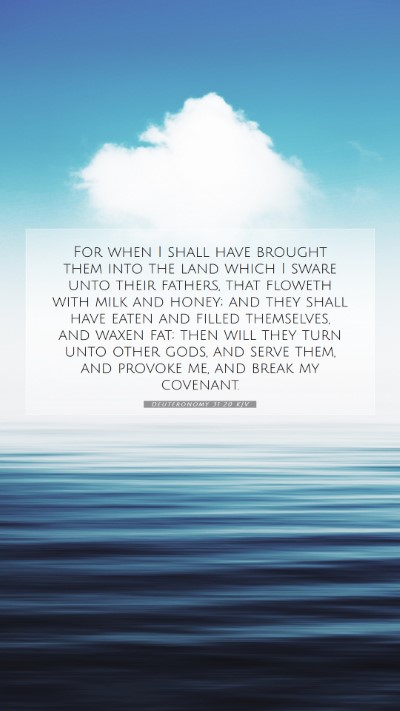Understanding Deuteronomy 31:20
Deuteronomy 31:20 states: "For when I shall have brought them into the land which I swore unto their fathers, that floweth with milk and honey; and they shall have eaten and filled themselves, and waxen fat; then will they turn unto other gods, and serve them, and provoke me, and break my covenant." This verse highlights critical themes related to Israel's covenant with God and their propensity for disobedience once God blesses them with abundance.
Summary of Biblical Meaning
The verse portrays a warning from God through Moses as he anticipates the Israelites' future behavior upon entering the Promised Land. The abundance they will experience poses a spiritual risk, leading them away from Yahweh to serve other gods. This foreshadows the recurring theme of unfaithfulness in Israel's history.
Key Insights from Commentaries
-
Matthew Henry:
Henry emphasizes the nature of human ingratitude towards God’s blessings. He notes that material success often leads to spiritual complacency and idolatry, urging readers to remain vigilant against the distractions of prosperity.
-
Albert Barnes:
Barnes elaborates on the implications of the land flowing with milk and honey, signifying not only physical sustenance but also spiritual abundance. He argues that this prosperity could blind the Israelites to their covenant obligations, leading them to forsake their loyalty to God.
-
Adam Clarke:
Clarke discusses the historical context, noting that the Israelites' future failures were known to God and Moses. He underscores the covenant's seriousness and the consequences of turning away from God after receiving His blessings, highlighting the importance of faithfulness.
Thematic Analysis
This verse encapsulates several important biblical themes:
-
The Covenant:
It reflects the seriousness of the covenant relationship between God and Israel, where adherence to God’s commandments is pivotal.
-
Human Nature:
The verse illustrates a fundamental aspect of human nature—tendency towards infidelity, particularly in moments of abundance and ease.
-
Warnings Against Idolatry:
It serves as a potent warning against the dangers of idolatry and the ease with which one's heart can turn away from God.
Cross References
Several related verses provide further context and insight into the themes presented in Deuteronomy 31:20:
- Exodus 34:15: Discusses the importance of not making covenants with people who serve other gods.
- Judges 2:12: Describes how Israel turned away from God after settling in the land and worshipped Baals.
- Hosea 13:6: Explains Israel's growing prosperity leading to forgetting God.
Applying Deuteronomy 31:20 to Daily Life
Understanding this verse is crucial for modern believers. It encourages self-reflection about how we respond to God's blessings in our lives. Are we remembering Him, or are we allowing material gains to distract us from our relationship with Him? This examination fosters a deeper awareness of our spiritual commitments.
Conclusion
Deuteronomy 31:20 serves as a timeless reminder of the call to remain faithful to God even in times of abundance. Reflecting on this passage helps enhance our Bible study insights and provides understanding of Scripture that is essential for spiritual growth.
Further Study
For those interested in deeper engagement with this verse and its implications, consider exploring related Bible study topics, engaging in online Bible study platforms, and utilizing Bible study tools that allow for comprehensive analysis of biblical texts.


